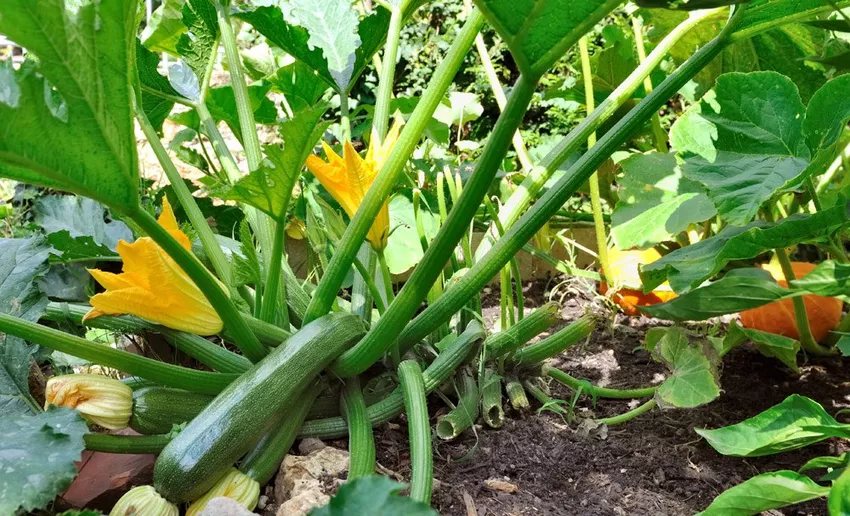Zucchini thrive best in nutrient-rich soil. For a good harvest, they should therefore be fertilized regularly.
 Like their relatives, the pumpkins and cucumbers, the zucchini also thrive in warm weather and in moist and nutrient-rich soil. Under these conditions, the plants can grow he althily and thus provide the gardener with a good harvest.
Like their relatives, the pumpkins and cucumbers, the zucchini also thrive in warm weather and in moist and nutrient-rich soil. Under these conditions, the plants can grow he althily and thus provide the gardener with a good harvest.
Unfortunately, the summer weather in our latitudes is often changeable. Cool summer days are therefore not uncommon. If the harvest is to be good, it is advisable to provide the zucchini with additional nutrients. Artificial fertilizer is not absolutely necessary. Natural fertilizer has proven to be best for all pumpkin plants.
Prepare the bed well and fertilize the zucchini properly
Zucchini have a high nutrient requirement and are therefore often referred to as "heavy eaters" by hobby gardeners. Therefore, the beds should be well prepared and fertilized before planting.
Compost and manure in the ground
Working compost and stable manure into the soil as early as autumn has proven its worth. Before the zucchini are planted outdoors in the following spring, it is advisable to enrich the cultivation area with compost and a natural long-term fertilizer such as horn meal or horn shavings about three weeks beforehand.
» By the way: Zucchini is only planted after the ice saints.
Liquid fertilizer after planting
Once you have planted your courgettes in the garden and they have grown well, you should water your plants regularly with a fertilizer solution. It does not necessarily have to be the commercially available liquid fertilizer. You can also make your own natural fertilizer, such as nettle manure.
To make nettle manure, do the following:
❶ Pick some stinging nettles before they bloom and place them in a large sealable container, such as a rain barrel.
❷ Pour water over the nettles to cover them and cover the bin.
❸ Leave the watering nettles for 8 to 10 days. The brew should be stirred daily. A short time later they catchStinging nettles begin to ferment, releasing nitrogen from their plant tissues.
❹ After 10 days, strain the manure and remove large parts of the digested nettles. Otherwise they could clog the watering can.
» Tip: Nettle manure is an excellent fertilizer for all plants with a high nutrient requirement in the garden. Dilute the liquid manure in a ratio of 1:10 to the irrigation water every 10 to 14 days.